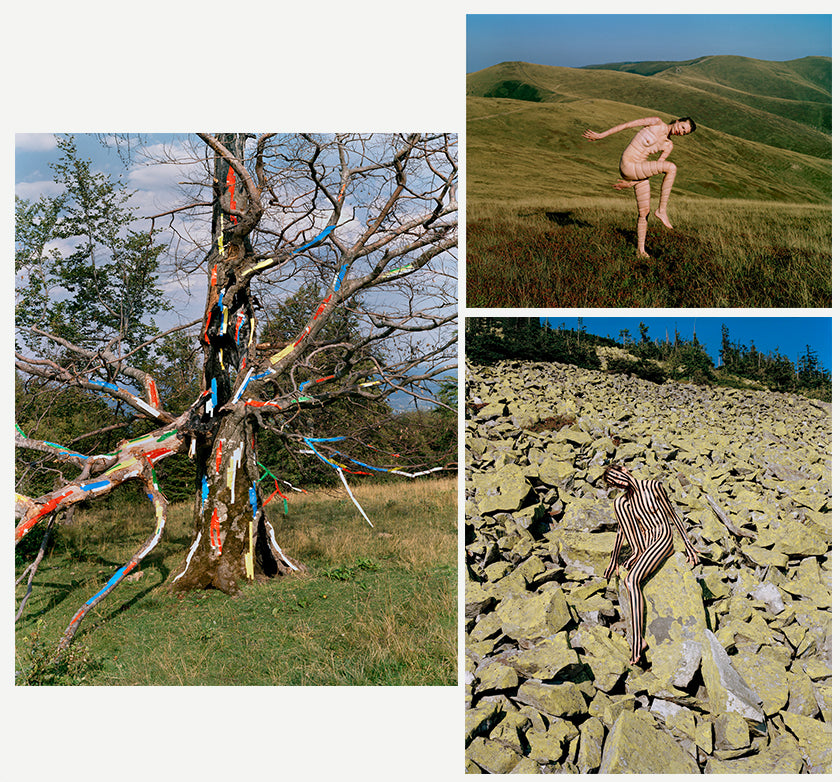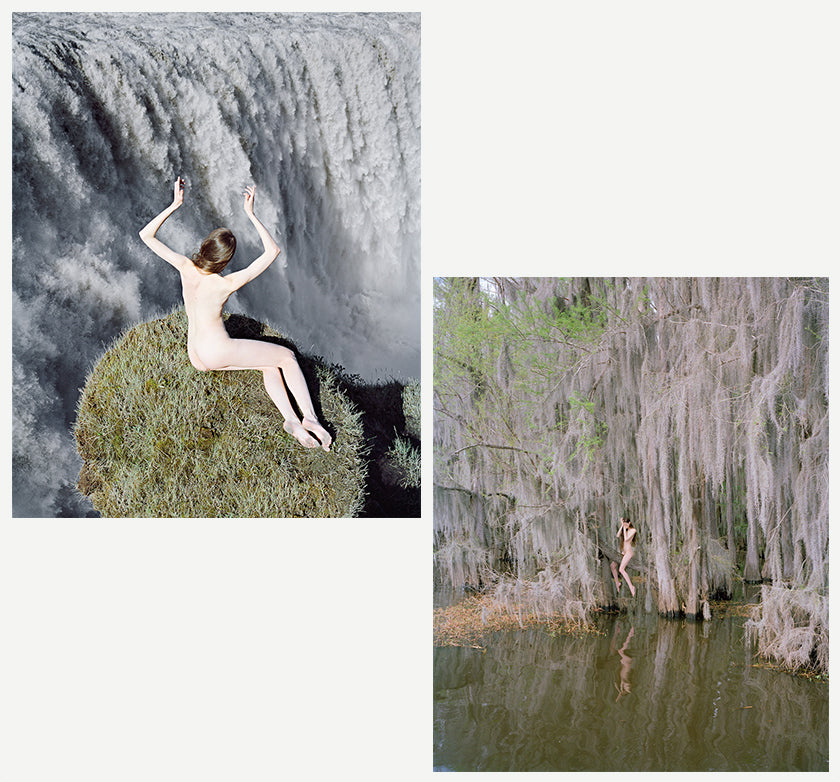Your Cart is Empty
Buy a book, plant a tree.
Synchrodogs depict the dying Carpathians Mountains and how humanity is exploiting its resources
The belt of the Ukrainian Carpathians was a plateau rich with rivers, seasonal fauna and flora, and wildlife. It was a territory defined by wilderness and the natural shapes of geographical evolution from volcanic activity to weather erosion. But human exploitation of the land is visibly changing the landscape beyond recognition. Ukrainian photography duo Synchrodogs were shocked by its recent transformation, which compelled them to react to the manmade intrusion. Together they developed a visual message that hopes to bring awareness to the vanishing Carpathian panorama.

Tania Shcheglova and Roman Noven, the photography duo who have been working side-by-side since 2008, recently spent a month traveling within the mountainous endemic forms of the Carpathians. Once covered by trees, meadows, and rock fields, today less than half of the region is forested. The province sits in the shadow of its formerly verdant self. During their travels, the pair witnessed thousands of trees being lumbered by locals every week, all illegally, they explain, for the sake of quick economic fixes. IKEA recently made headlines as buyers of the region's illegal logging. In every mountain restaurant, hotel, and house, the insides were decorated with taxidermy while animal existence in the forest appeared extinct. They witnessed a valley on fire from irresponsible campers, and landscapes once-flourishing now bare of trees and vegetation.
'Slightly Altered' is a series that started as a response to what they were witnessing, particularly how local communities were interfering with the forest. The pair acknowledge that humans have always been shaped by the natural forces around them, but there is a limit to Earth's resources. Their fine art photography intends to showcase how humans and nature are intertwined, and that changing the environment means we change ourselves. Scientists say Ukraine is seeing accelerated climate changes that neither the government nor the population is equipped to deal with. The ravishing consequences were displayed at the start of July when the worst floods since the 1990s severely damaged over 300 towns. Illegal logging, wildfires, and deforestation enhanced the speed and sheer scale of the disaster. Sporadic weather is becoming an ever prominent issue, even the cold winters are vanishing.
"Nature appears endless and powerful in our pictures, we aim to motivate people to appreciate the world more," they say. Through their work, they aim to convey a message that is far from hopeless, but at the same time inspires an optimistic prospect through education. "Not the kind of education one gets in school or university, rather some influence on a very subtle level where all people learn to love nature to the extent of not willing to do any harm to it," they say. Apart from shining the light on environmental issues, they would like to spur people to spend more time in nature and lead a less urbanized kind of life. By encouraging a more profound connection with nature, they hope a dialogue develops that shows the Ukrainian Carpathians as more than just a resource.

Naked body forms interact with nature and the landscape throughout the series. "This symbiosis we achieve by putting a naked body into wild nature is the purest form of coexistence for us," they explain. Humans merge naturally into it and appear to be something abstract, something that belongs to that environment fully and irrevocably. They are placed there organically, the same way trees are with stones around to allude to humanity’s real place on Earth.
Explore a world of photography and graphics for our Visual Culture titles.